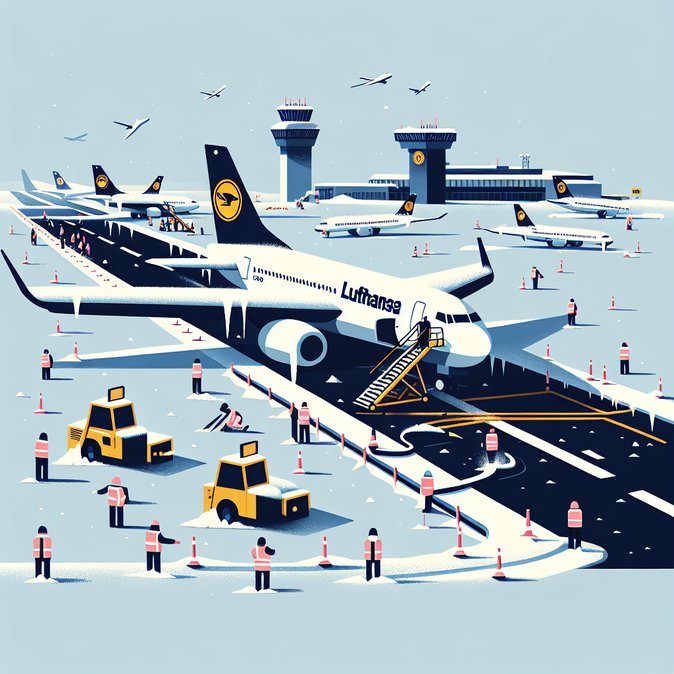
Business travellers had a messy start to the weekend on Saturday, 15 November, as freezing fog, de-icing equipment shortages and a spike in influenza-related sick leave combined to disrupt operations at Germany’s six largest airports. Data compiled by aviation analytics firm Cirium and cited by VisaHQ show 41 flight cancellations and nearly 860 delays, with Frankfurt and Munich worst affected.
Lufthansa bore the brunt, scrapping 18 sectors at Frankfurt—including two trans-Atlantic rotations—and warning passengers to expect residual knock-ons into Sunday. Hamburg, Düsseldorf, Berlin Brandenburg and Stuttgart also reported significant delays, prompting carriers to waive change fees and re-route passengers onto rail services where possible.
![Winter weather and staff sickness trigger 41 flight cancellations and 858 delays at German airports]()
Ground-handling contractors told local media that staff illness rates had climbed to 18 percent, leaving too few crews to cope with a sudden surge in de-icing demand. Airports insist contingency plans are in place for December’s peak season, but unions say chronic understaffing—exacerbated by slow security-clearance procedures—means any weather event can quickly snowball into system-wide chaos.
For corporate mobility teams, the episode underlines the fragility of Germany’s aviation ecosystem despite record passenger volumes this year. Companies are advised to build larger schedule buffers, proactively re-book critical travellers and ensure duty-of-care tracking covers rail alternatives when domestic sectors are cancelled. EU air-passenger-rights rules oblige airlines to provide care and compensation, but claims can take weeks to process.
The German Transport Ministry is monitoring the situation and has urged airports to accelerate winter-resilience upgrades. Whether that will be enough to prevent a repeat during the Christmas rush remains to be seen.
Lufthansa bore the brunt, scrapping 18 sectors at Frankfurt—including two trans-Atlantic rotations—and warning passengers to expect residual knock-ons into Sunday. Hamburg, Düsseldorf, Berlin Brandenburg and Stuttgart also reported significant delays, prompting carriers to waive change fees and re-route passengers onto rail services where possible.

Ground-handling contractors told local media that staff illness rates had climbed to 18 percent, leaving too few crews to cope with a sudden surge in de-icing demand. Airports insist contingency plans are in place for December’s peak season, but unions say chronic understaffing—exacerbated by slow security-clearance procedures—means any weather event can quickly snowball into system-wide chaos.
For corporate mobility teams, the episode underlines the fragility of Germany’s aviation ecosystem despite record passenger volumes this year. Companies are advised to build larger schedule buffers, proactively re-book critical travellers and ensure duty-of-care tracking covers rail alternatives when domestic sectors are cancelled. EU air-passenger-rights rules oblige airlines to provide care and compensation, but claims can take weeks to process.
The German Transport Ministry is monitoring the situation and has urged airports to accelerate winter-resilience upgrades. Whether that will be enough to prevent a repeat during the Christmas rush remains to be seen.









